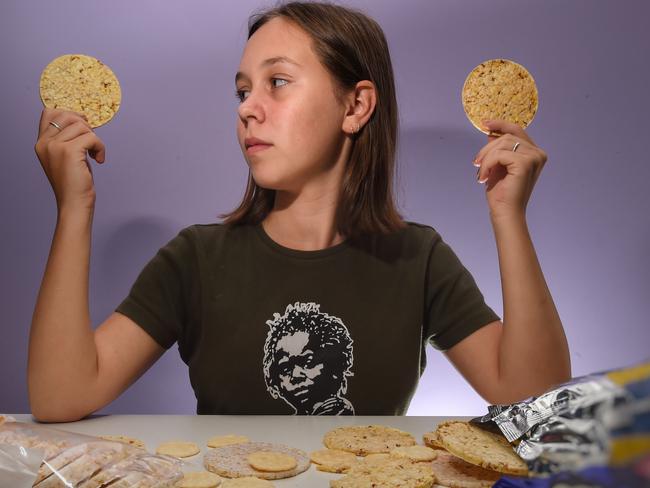Life-threatening allergy triggers not always labelled in packaged foods
PEOPLE with food allergies are taking big risks eating packaged foods, with new research finding many contain unlabelled allergens that can cause life-threatening anaphylaxis.
VIC News
Don't miss out on the headlines from VIC News. Followed categories will be added to My News.
PEOPLE with food allergies are taking significant risks eating packaged goods, Melbourne researchers have warned.
TEENS WITH ALLERGIES HAVING FREQUENT REACTIONS TO EGGS, NUTS AND OTHER TRIGGERS
BOY DIES FROM HOSPITAL FOOD DESPITE WARNING ABOUT ALLERGIES
MELBOURNE RESTAURANTS CATERING TO DIETARY REQUIREMENTS REAPING THE REWARDS
PEANUT ALLERGY OVERCOME FOUR YEARS AFTER MELBOURNE BREAKTHROUGH
A Murdoch Children’s Research Institute survey has found it was not uncommon for packaged items to include unlabelled allergens that could cause life-threatening anaphylaxis.
Allergy experts and families are calling for the food industry to enact a more reliable labelling system, including making it clear when foods are safe or at low risk of cross-contamination in the manufacturing process, to allow for safer food choices for the many Australians with allergies.
The institute surveyed almost 200 allergy specialists, asking if they had seen any patients in the past three months who suffered anaphylaxis after eating a packaged food where the suspected allergen trigger was not listed as an ingredient.

There were 14 reports of anaphylaxis. Half were from food that did not have precautionary allergen labelling, such as “may contain traces of ...”, with most reactions due to peanuts.
The findings will be published today in the Journal of Paediatrics and Child Health.
Senior author Professor Katie Allen said the study showed people with allergies were taking a gamble eating packaged foods, and manufacturers should tell consumers whether foods had been through a risk assessment.
Past research by MCRI has shown about a third of packaged foods had been deemed safe after undergoing a risk assessment, but there was no label advising the consumer of this.
“At least 20 per cent of food products have gone through a risk assessment, but we’re not always told that,” Prof Allen said. “We’re not saying to manufacturers you have to guarantee it’s safe, or create astronaut food. We want them to say if it’s been assessed and let the consumer make the choice.”

Emilia Habgood, 15, was taught to check ingredient lists and ask about the ingredients in her food, long before she could read.
Since having her first allergic reaction to wheat at five months of age, she now carries an Epipen and is careful to avoid wheat, eggs and peanut.
One of her latest anaphylaxis attacks was after eating rice crackers, despite checking the label and eating the same brand before.
“She’s quite cautious about what and where she eats,” said her mum Helen Czech.
“When you’re a teenager, it’s about fitting in and feeling like you can socialise with friends in a safe way. When you’ve got extra anxiety about the foods you eat, taking that pressure off through better labelling would be enormously beneficial for her.”


